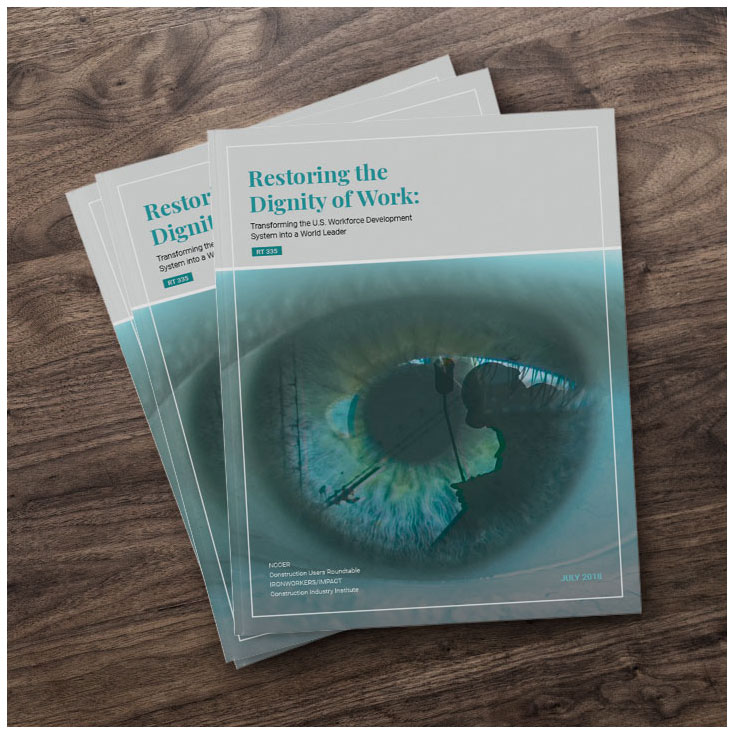
ALACHUA, Fla. — At the crossroads of a thriving future society and innovation lies the nation’s construction industry, where everything begins. The backbone of our society rests on the craft professionals who build our hospitals and schools, wire electricity within our homes and bring us indoor plumbing. The perception of craft professionals has become one of low- or middle-skill workers when, the reality is, the world as we know it would not exist without their expertise.
“Craftsmanship is defined as ‘the beautiful or impressive quality of something that has been made using a lot of skill’. Construction craft professionals exhibit this routinely and every member of our society benefits from this in almost all aspects of their daily life. However, over the past few decades, our society has steadily undervalued their skills and contributions to our built environment,” says Don Whyte, CEO of NCCER. “We must recapture the dignity of work as well as the pride and honor inherent in skilled occupations. It is critically important that our nation transforms our workforce development system into a global leader effectively supporting worker development for every industry that employs skilled professionals. As the construction industry builds the world, it must also polish its image and hold all workers in high regard.”
The fact of the matter is the average age of a craft professional is 47 and by 2031, 41 percent of the current workforce will retire. Considering it takes 8-12 years for an individual to go from entry level to fully trained to seasoned craft professional, it is critical to employ needed changes now that will support the development of our current and future workforce. How do we fix this? Directives necessary to revitalize the United States’ workforce development system are outlined in “Restoring the Dignity of Work: Transforming the U.S. Workforce Development System into a World Leader” and we must work together as a collaborative group of education providers, businesses, industry associations, unions, foundations and individuals to implement these policies.
“In my 25 years of having the privilege of working with the Construction Industry Institute on multiple research projects, the topic of how to transform our U.S. workforce development system for the construction industry has, by far, been one of the most difficult research projects to tackle,” states Paul Goodrum, professor at University of Colorado Boulder. With input from 1,400 craft trainees and workers, 45 site visits, analyses of state workforce development agencies and 21 different data sources, the comprehensive research in “Restoring the Dignity of Work” delivers policies that are both short term, which can be implemented in less than three years, and longer-term efforts. The policies are:
- Establish and strengthen career awareness and education opportunities in our nation.
- Revitalize our work-based learning programs.
- Measure performance and involvement in workforce development when awarding construction contracts.
- Redefine how we measure the quality of our nation’s secondary education system by career and college readiness.
- Increase the participation of underrepresented groups in career and technical education.
- Establish and expand collaboration between industry, education and government.
- Develop more balanced funding among post-secondary CTE versus higher education.
This paper was developed by an industry-driven research team led by NCCER and CII with support from Construction Users Roundtable, Ironworkers/IMPACT and representatives from CII member firms. In addition to the full paper, an advocacy document has been provided to assist with educating local, state and federal legislators, industry and association executives, educators and the general public on why reforming the U.S. workforce system is critical. To download “Restoring the Dignity of Work” or the advocacy document, visit www.nccer.org/research.



 Join our thriving community of 70,000+ superintendents and trade professionals on LinkedIn!
Join our thriving community of 70,000+ superintendents and trade professionals on LinkedIn! Search our job board for your next opportunity, or post an opening within your company.
Search our job board for your next opportunity, or post an opening within your company. Subscribe to our monthly
Construction Superintendent eNewsletter and stay current.
Subscribe to our monthly
Construction Superintendent eNewsletter and stay current.